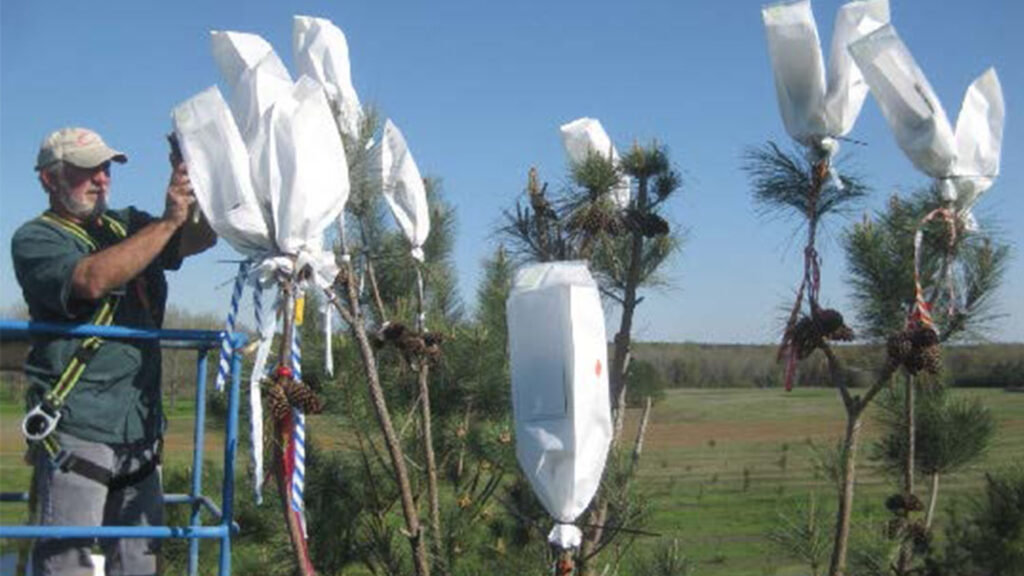Increasing Value to Landowners and Citizens Through Continuous Genetic Improvement of Forest Trees

About
The Tree Improvement Program at the College of Natural Resources is a public-private cooperative that conducts vital research and operates an advanced breeding program to increase forest productivity by developing more valuable tree stock. Genetically improved loblolly pines with increased resistance to disease, improved growth rates, and higher stem quality, among other traits, allow for more flexible management options and yield greater returns for landowners, foresters, forest companies and the forest products industry.
Applied research is the foundation of the program’s success, with key focus areas including seed orchards research for controlled pollination, genetic parameters and response to selection, wood quality, genomic selection, QTL mapping and marker aided selection. Researchers rigorously test the trees and select elite individuals that offer the greatest potential value, all the while maintaining genetic diversity for future breeding generations. The process provides numerous planting options for various deployment and management strategies.
The program hosts annual meetings for members and a number of workshops, short courses, and seminars on a variety of topics, ranging from grafting techniques to determining the financially optimum varieties to plant under varying silvicultural systems. Program staff also advise cooperative members on all aspects of their tree improvement programs and provide detailed evaluations of regeneration activities as well as guidance on optimizing breeding, testing and selection programs.
PIs
Fikret Isik (Director)
Steven E. McKeand
Ross W. Whetten
Trevor Walker
Austin Heine
Collaboration
- Members of the NC State Cooperative provide genetic material that is planted on over one million acres per year in the southern United States.
- The program partners with 39 members, including landowners, nurseries, consultants, state agencies and forest products companies.
Impact
Landowners have never had so many options to plant loblolly pine of outstanding genetic quality.
- >60% of the pine trees planted in the southern U.S. come from the program’s genetic stock
- $1.9 billion in wood across the southern U.S. comes from genetically enhanced trees
- ~240 global and national leaders educated in the field enhanced breeding
A McIntire-Stennis supported project for over 30 years
About McIntire-Stennis
The McIntire-Stennis program, a unique federal-state partnership, cultivates and delivers forestry and natural resource innovations for a better future. By advancing research and education that increases the understanding of emerging challenges and fosters the development of relevant solutions, the McIntire-Stennis program has ensured healthy resilient forests and communities and an exceptional natural resources workforce since 1962.